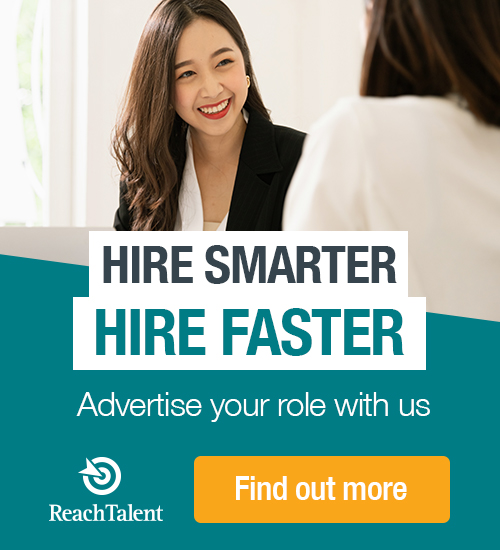How to attract talent in a candidate-short market



Recruiting is no longer only about what you can offer, but also about what you stand for. In our globalized world where the next competitor can easily outbid you in a remuneration war, competing for candidates based on salary alone is no longer a sustainable strategy.
Our Talent Trends 2023 survey report titled ‘The Invisible Revolution’ found that salary still ranks first on a list of job motivators across the Asia Pacific. At the same time, 53% of respondents in the Philippines are willing to reject a promotion if they believe it will have a negative effect on their well-being.
Nikhil Jaiswal, Regional Director of Michael Page India, elaborates, “Salary will always be the top motivator for an employee to join a company. However, what is important to note is that salary, alone, is no longer sufficient for candidates to accept a job offer.”
If a candidate receives multiple job offers, they will not necessarily pick the role that offers the highest salary. Instead, they would go with the company that made them feel most welcome.
Related: 2023 Philippines Salary Guide: Salaries you should be paying your talent
High-performing and talented job applicants are keen on learning and improving their skills, so career growth opportunities are always big motivators for them to join any organization.
In fact, across the Asia Pacific, career progression and promotions have emerged as the second most important job motivator, after salary, according to our Talent Trends 2023 report survey findings.
In the Philippines, career progression ranked second in our Talent Attraction Index, a list of motivators that best attract talent to their next role, six places higher than last year.
This means it has become crucial for hiring managers to provide candidates with transparent information on their career path if they join the company. It also means that companies need to pay attention to how current employees can advance within the company in order to retain them.
Employees have always been interested in career progression in APAC. In our Talent Trends 2021 report, a lack of upskilling options was one of the top three reasons that would cause employees to leave their job voluntarily across all levels of the company, from entry-level workers to VPs.
This finding was further amplified in our Talent Trends 2022 report, where 38% of respondents say that a lack of career progression or promotion will lead them to resign from their jobs in the Philippines.
Career growth opportunities can also come in the form of mentorship and is an essential part of a talent attraction program. It is not just employees who benefit from these initiatives; organizations can enjoy higher engagement, retention, and knowledge-sharing, which boosts employer branding to attract top talent.
After the lockdowns and restrictions brought about by the COVID-19 pandemic, companies have learned how to implement hybrid working arrangements and exercised flexibility for employees working from home.
“Flexible work is here to stay,” says Nilay Khandelwal, Managing Director at Michael Page Singapore. “It boils down to the trust created in the last three years of hybrid work. Culture gets created on the back of becoming comfortable with that model.”
Depending on the job scope and industry, employers need to consider flexibility as part of the employee experience. Companies need to stop waiting for things to return to pre-pandemic days — the way we work has forever changed.
Some findings on flexibility from our Talent Trends 2023 Report:
The findings from our talent trends report show that flexibility requirements do not just come from one category of employees – everyone wants flexibility at work.
“Flexibility has to be customized to individuals and it also depends on the industry. Some people love the concept of going to the office while others don’t. It also depends on your work environment. For instance, in Hong Kong, everyone goes to the office because homes are small. The important thing is to have a choice. It is not flexible if it is defined. Everyone views employee engagement differently and relates to flexibility differently,” adds Khandelwal.
Organizations that embrace flexibility, instead of simply tolerating it, as a good business strategy will have significantly better retention rates.
People don’t want hard and fast rules when it comes to flexibility — they want your trust to make the right decisions. The ability to retain talent will improve with adaptive flexibility policies that target individual needs rather than one-size-fits-all rules.
Using benefits like hybrid work as a selling point will not stand out to prospective talent unless a company’s approach to flexibility is holistic and end-to-end.
Related: How qualitative performance evaluations give businesses a competitive edge
It can be a fuzzy thing to define, but candidates usually know good company culture when they experience it.
For companies to attract, retain, and grow the talent that will bring them long-term success, they will need to tweak — or even overhaul — their culture to meet the expectations of professionals to be seen as human beings and not just cogs in the machine.
Employees want to work in a place built on respect, trust and kindness. Creating a people-first culture can bring about huge payoffs for companies: It boosts team morale, enhances collaboration, and improves overall productivity and performance.

The question is, how can job candidates experience your company’s culture before they accept the job offer?
It is key not to underestimate every touchpoint an employer gets with a potential new employee. And it starts when you advertise with the job descriptions, and following that the way HR personnel and hiring managers sound when they talk on the phone or email the candidates.
Treat job descriptions as a proposal that will be mutually beneficial. Make clear what it will take to succeed in the role, but ensure that you are painting a clear picture of what the candidate can stand to experience, learn, and achieve within the role and company.
“Hiring managers can humanize the conversation. They can share their experiences at that company, talk about what they enjoy about their jobs, not the technical aspects but just what makes them happy to go to work, what the hybrid work arrangements are like, etc. These would help bring across the company culture at your organization. Also, the interview session should not be treated as an interrogation. It is a two-way conversation,” explains Sonia Fernandez, Associate Director at Michael Page Thailand.
The best way to attract candidates is through positive word of mouth. It is no secret that candidates look at reviews on Glassdoor to get an idea of a company’s culture before applying for their open roles. Internally, organizations need to connect employees to corporate initiatives that encourage collaboration, transparency, and trust.
Culture-enhancing activities could be as simple as organizing team lunches, being flexible with remote working or even offering more parental leave. All these gestures — whether big or small — cultivate a positive company culture from the top down that is enforced at all levels of the organization.
A great company culture improves employer branding, making your company more appealing to top candidates. According to Glassdoor’s Statistical Reference Guide for Recruiters in 2020, almost all employees (93%) mention company culture in their reviews on the site, making it clear just how important it is to them.
The same report revealed that having an overall rating on the website that’s one star higher — a score that includes points for positive company culture — attracts talent six times more effectively than paying a higher salary.
Related: 5 interview questions to ask to tell a great candidate from a good one

One tangible indicator of company culture at any organization is its diversity, equity, and inclusion (DE&I) policies, says Kristoffer Paludan, Regional Director of Michael Page Thailand.
The rise in awareness of diversity comes at a time where modern organizations are increasingly structured to be collaborative and team-based, and there’s ample evidence that those who effectively recruit and manage a diverse workforce have a clear competitive advantage.
Many big organizations that have embraced the concept include Gap, L’Oréal and Nestlé, according to Thomson Reuters’ Diversity and Inclusion Index. Moreover, companies with a greater gender mix and ethnic diversity consistently outperform the rest by up to 21%, achievements that will surely catch the eye of top talent.
Paludan adds that more candidates are now bringing up DE&I during discussions on job interviews. They are asking if companies have a DE&I strategy, how that aligns with the overall company strategy and how they manifest in their company culture.
Related: How to hire to improve gender diversity in the workplace
According to our Philippine Talent Trends 2022 Report, 74% of respondents have asked or would consider asking about a company’s DE&I policies at job interviews, of which 71% are Baby Boomers, 89% are Gen Z, while Millennials make up 77% and Gen X, 71%.
On top of that, 32% of respondents say they would withdraw from interviews or job opportunities if they observe a lack of DE&I policy and commitment from potential employers.
People want to work in a place where they are heard and valued, and where there’s psychological safety to express their ideas and opinions.
Aside from reading about the DE&I policies companies may have on their websites, candidates can easily observe the level of diversity and inclusion in a company by going through the respective company’s LinkedIn account and looking at the profiles of its employees.
Related: 5 ways to improve equity in the workplace
With the competition for applicants intensifying, companies should also consider candidates from different industries with similar skill sets.
According to Sharmini Wainwright, Senior Managing Director at Michael Page Australia, the traditional approach to recruitment has always been quite linear.
“For instance, many hiring managers only consider potential hires from the same industry. Many don’t stand back and think: ‘What skill set am I looking for? What other job functions and industries can I recruit from?’ But that mindset is slowly changing.”
She adds: “If organizations want a solid chance at addressing the talent shortage problem, many realize they will need to get creative and hire from sources they might not have previously considered. If a potential candidate has the primary skill set but not the technical knowledge, it could be organizing training sessions or upskilling them to get them up to speed.”

There are several factors that contribute to a holistic employee experience: adequate pay, flexibility, hybrid work arrangements, and upskilling and reskilling opportunities for career advancement.
According to Toby Truscott, Managing Director at Michael Page Japan, “it is important not to underestimate the impact of having changes to working conditions thrust suddenly upon us as a result of the pandemic. Whilst many have enjoyed the opportunity to work remotely, many have also experienced isolation and fatigue. Moving forward, it is important to provide choices to employees.”
In this post-COVID era, offering flexibility and hybrid work models at the workplace are no longer substantial perks. These have become hygiene factors.
The Asia Pacific talent emphatically demands flexibility, yet the day-to-day experience of work flexibility is entirely individual. Flexibility preferences and needs, however, are nuanced.
The desire for flexibility and hybrid work models is consistent across all seniority levels in an organization, even for those at C-suite levels, and across all generations, even Gen Z (1965-1980) and baby boomers (1946-1964). During job interview sessions, it is crucial for the hiring manager and HR personnel conducting the interviews to inform candidates of the organization's hybrid work models, if any.
Large organizations may lean on their well-marketed company brands, but this strategy is no longer viable in this new era of talent acquisition in a candidate-driven market.
“In the past, working for a big multinational brand was a real motivator and a significant driver for candidates we represented. But that dynamic has shifted,” says Anthony Thompson, Regional Managing Director, Asia Pacific, and Executive Board Director at PageGroup.
Our Talent Trends 2023 report also found that employers overvalue the importance of their company brand by 48% when it comes to talent attraction in the Philippines.
“A company brand is how the world perceives you and is what companies use to attract customers. Those with a good company brand think people would want to work with them just because of their well-perceived company brand image. However, that is not the case; and companies that still think this way would not be able to attract and retain talent efficiently if they do not work on their employer branding,” Rhiannon Guilford, Director at Michael Page Philippines, explains.
“Candidates are looking for a lot more than a big brand now. They are interested to know how a company’s vision and purpose align with their values; they want to know how they can fit into the company culture and will look at things like diversity, equity, and inclusion (DE&I),” says May Wah Chan, Regional Director for Page Executive and Michael Page Malaysia.
Related: A culture of employee recognition contributes to talent retention and business success
“Candidates are asking more in-depth questions about a company’s vision and how companies give back to the community. I advise companies to convey a simple, clear, and consistent message throughout the interview process,” says Olly Riches, Senior Managing Director of Indonesia, Singapore and Philippines, and Page Executive SE Asia.
He adds: “We are also starting to see Environmental, Social and Governance (ESG) becoming a prominent topic for Millennials and Gen Z. What companies can do is to bring senior decision-makers earlier into the interview process as they tend to have more information and can articulate ESG goals quickly and confidently, and that can attract candidates.”
In a world where money is no longer the sole motivator for employees, organizations need to move towards creating and maintaining a positive and meaningful company culture and employee experience to retain the best and brightest. They also need to focus on developing a strong employer brand and offer clear career growth opportunities.
Discover the latest talent trends in our 2023 Talent Trends report, The Invisible Revolution. This survey report findings are based on responses from 20,811 people across 12 markets in Asia Pacific, of which 1,306 are from the Philippines.
It covers what hiring professionals need to know to address talent attraction and employee retention for the year ahead. It also highlights a change in the hiring outlook as job candidates and employees now prioritise their well-being more than ever. Download our report to find out more.
Read more:
3 ways to be agile during business disruption—fast
How HR needs to evolve to support the future of work
The importance of good communication in the workplace
